|
Last week, the West Virginia Legislature passed legislation that improves the 25% State Historic Tax Credit (HTC) in West Virginia, and it is now on its way to the Governor's desk.
House Bill 4568 (known as Phased Rehabilitations of Certified Historic Structures) achieves multiple goals such as:
If signed into law by Governor Justice, this legislation will become effective on July 1, 2022. What this means for West Virginia is that completing HTC projects just got a little simpler. The three-part application for the state and federal HTCs (which when combined total 45%) will be a more fluid process when working with the West Virginia State Historic Preservation Office and the National Park Service because the agencies will now follow the same procedural rules, thus minimizing paperwork requirements. Equally as important, removing the limitations on allocations and guarantees of historic tax credits will make it more secure and improve investor confidence when undertaking both larger and smaller projects. This is a major win for West Virginia! These provisions increase the Mountain State’s attractiveness from industry-based development firms that specialize in HTC-backed projects, in addition to making the program more user-friendly for individuals wanting to undertake smaller projects. Neighboring states have more restrictive programs, making West Virginia a very investor-friendly state for HTC projects in the mid-Atlantic region. For instance, Maryland has a 20% state HTC that is capped at $3 million per project with a $9 million annual cumulative cap per fiscal year. Pennsylvania and Ohio both have a 25% state HTC, but they have $5 million annual cumulative cap per fiscal year. HB 4568 was sponsored by Delegates Jason Barrett (R-61), Eric Householder (R-64), Erikka Storch (R-03), Vernon Criss (R-10), Paul Espinosa (R-66), Daniel Linville (R-16), Joe Ellington (R-27), Ruth Rowan (R-57), Clay Riley (R-48), Dianna Graves (R-38), and John Hardy (R-63). The Alliance appreciates their support and would also like to thank the leadership and policy expertise provided by the Abandoned Properties Coalition and their long-term dedication to seeing West Virginia’s state historic tax credit improved. The Preservation Alliance of West Virginia is the statewide, grassroots nonprofit dedicated to historic preservation. The Alliance has been working as a member of the Abandoned Properties Coalition since 2016 to improve the state HTC to include the provisions outlined in HB 4568. For inquiries regarding usage of the West Virginia commercial HTC, contact the West Virginia State Historic Preservation Office’s Tax Credit Coordinator, Meredith Dreistadt at [email protected].
2 Comments
West Virginians are invited to celebrate their historic preservation success stories through the Preservation Alliance of West Virginia’s new West Virginia Preservation Spotlight series. Submitting a Preservation Spotlight story helps shine a light on the small preservation successes that can add up to significant positive change in a community. Whether it’s a homeowner restoring a historic feature of their house or a business moving into a building on historic Main Street, PAWV wants to hear about preservation “wins” both big and small.
Spotlight stories should involve a West Virginia property listed on the National Register of Historic Places or as a contributing structure to a National Historic District. If you believe your story is relevant despite not meeting this specification (perhaps an event or advocacy success), please email to check with a member of our staff at [email protected]. Submitted Preservation Spotlight stories may be featured on PAWV’s website and social media channels to celebrate the positive steps everyday West Virginians are making towards historic preservation in their communities. PAWV is accepting submissions through a Google form here. A Word document submission form is available for download below. Come to Virtual Morning Coffee with the Preservation Alliance of West Virginia, the National Trust Community Investment Corporation, and the National Trust for Historic Preservation.
Join us at 9am on Thursday, December 16th, for a news brief where we’ll discuss an opportunity to improve a crucial tool for redeveloping West Virginia’s downtowns and incentivizing the re-use of vacant buildings - the historic tax credit. A total of 122 Federal Historic Tax Credit projects in West Virginia between fiscal year 2001 through 2020 has leveraged an estimated $258,016,381 in total development. During the news brief, we will share a legislative update, how to take action and how potential improvements to the historic tax credit can benefit local community development by maximizing the long-term impact and sustainability of current federal funding opportunities for community projects by incentivizing private sector investment. Register here https://savingplaces-org.zoom.us/meeting/register/tJ0lf-6rrDwsHtUg7nddSrjOJqOE8i9b3ibZ West Virginia has made its historic tax rehabilitation credit program permanent. Gov. Jim Justice recently signed the bi-partisan bill, which provides a 25% tax credit for those who rehabilitate historic income-producing properties. The 25% credit, which became law in 2018, was set to expire at the end of 2022. In those five years, the program attracted renewed interest in West Virginia’s historic commercial districts and spurred private reinvestment in more than 80 vacant and dilapidated buildings throughout the state. In just two of those years, more than $34 million were invested in nine projects. The move to a permanent 25% credit provides needed certainty to property owners and developers, explained Renee Kuhlman, Senior Director at the National Trust for Historic Preservation. The 25% credit often fills a financing gap in a project, but the uncertainty around its future made it difficult for developers to successfully apply for construction loans or plan long-term projects. “The removal of the sunset date increases the attractiveness of the credit to investors,” Kuhlman said. “Already, I’ve received a call from a New Orleans developer wanting information about West Virginia properties because the program was made permanent.” Without this tax credit, many historic redevelopment projects would not happen, explained Danielle Parker, executive director of the Preservation Alliance of West Virginia, a statewide organization dedicated to supporting and promoting historic preservation. The 25% credit is often the reason a project becomes feasible. "There are over 1,000 properties, including 168 historic districts, that can be revitalized using the credit, and I am excited to see how these places can be brought back to life using this financial incentive,” Parker said. The state historic tax credit is capped at $30 million of income tax credits per year. The program also offers a 20% residential rehabilitation credit for historic homes, which is also permanent. The State Historic Tax Credit is administered by the WV Historic Preservation Office, and the National Parks Service. For more information on applying for the credit or to find out if your property is an eligible tax credit project, please call 304-558-0240. You can also Visit the WV Historic Preservation Office's website for additional information. THANK YOU!Thank you to Senator Ryan Weld for being the original sponsor of this legislation and for being a champion of historic preservation and community revitalization for West Virginia!
We want to say thank you to the legislation's co-sponsors too! They are Senators Mike Woelfel, Robert Plymale, Richard Lindsay, Eric Nelson, Stephen Baldwin, Mike Maroney, and Glenn Jeffries. Special thanks to Delegate Erikka Storch for supporting this bill through the House of Delegates and to the Abandoned Properties Coalition for leading the charge to make the 25% state historic tax credit permanent. U.S. Senators Joe Manchin (D-WV), Chairman of the Senate Energy and Natural Resources Committee, and Shelley Moore Capito (R-WV) introduced bipartisan legislation, S. 1258, on Tuesday to extend the authorizations of West Virginia’s National Coal Heritage Area and Wheeling National Heritage Area – which are set to expire September 30, 2021.
“As Chairman of the Senate Energy and Natural Resources Committee, I am well aware of the impacts National Heritage Areas can have on local communities. Extending the authorizations of the National Coal Heritage Area and the Wheeling National Heritage Area will allow us to continue to recognize their significant contributions to our nation and provide an economic boost to the communities around them. This bipartisan legislation will preserve and protect West Virginia’s rich cultural traditions and historic sites so that future generations can enjoy them as we have, and I look forward to it being enacted into law,” said Senator Manchin, Chairman of the Senate Energy and Natural Resources Committee. “Both the Wheeling National Heritage Area and National Coal Heritage Area are important to the culture and scenic beauty of our state. It is essential that we extend their designation as National Heritage Areas to help continue our efforts toward conservation, restoration, and economic development in these regions. I’m proud to introduce legislation that will help boost tourism and revenue in West Virginia, while also helping to expand opportunities for people to enjoy the natural beauty and history that our state has to offer,” Senator Capito said. National Heritage Areas (NHA) are designated by Congress as places where natural, cultural, and historic resources combine to form a cohesive, nationally important landscape. By extending the official NHA designation, the National Coal Heritage Area and Wheeling National Heritage Area can continue to remain eligible for grants and technical assistance from the National Park Service that help create jobs, generate revenue for local governments, and sustain local communities  Pictured here is the Flatiron Building located on Main Street in downtown Wheeling. It had been vacant for years before being totally transformed into loft housing with a first-floor coffee shop. This $2.5 million dollar project qualified for $632,653 in state historic rehabilitation tax credits and created 19 constructions jobs. In 2017, the West Virginia Legislature voted to increase the state historic rehabilitation tax credit from 10% to 25%. However parts of the legislation will affect future reinvestment opportunities and even discontinue the tax credit increase. A network of nonprofit organizations, municipalities, and private investors have joined together to ask the Legislature to address these issues and are asking for support in favor of SB344, which was introduced by Senator Weld (R-1) with Senators Plymale (D-5) and Woelfel (D-5) as co-sponsors. SB344 is a bi-partisan bill that will:
the state historic rehabilitation tax credit works for west virginia!From 2018 to 2021, the historic rehabilitation tax credit has attracted renewed interest in our historic commercial districts and spurred private reinvestment in over 80 vacant and dilapidated buildings (some of which are pictured above). When a vacant or underutilized building is repurposed, it generates additional revenues to local government through increased property taxes. Once the state's initial investment is recouped, the project continues to yield positive economic impacts through a combination of sales, income, and business taxes. In 2018 & 2019, over $34 million dollars were invested to finish 9 projects in Charleston, Clarksburg, Fairmont, Franklin, Huntington, Spencer, and Wheeling. These projects created 256 construction jobs for West Virginia. Rehabilitation projects support higher labor costs for construction jobs rather than new materials and also utilize in-state trades and professional services such as legal, accounting, architectural, and engineering, as well as wholesale trade and retail trade. Large and small-scale developers report that historic rehabilitation tax credit programs fill a critical financing gap. The 25% rate provides an incentive to make a difference in a developer's decision to undertake a rehabilitation project, and it makes projects more feasible for individuals. How Does the tax credit work?When rehabbing a certified historic building for a commercial purpose, owners apply for tax credits through the WV State Historic Preservation Office. A building is considered a certified historic structure when it is either individually listed on the National Register of Historic Places or contributing within a historic district. The state historic rehabilitation tax credit is a dollar-for-dollar reduction in income tax liability and can only be applied to the owner's annual income after a rehabilitation project is complete. State and local governments benefit from an increase in employment and other tax revenue even before the tax credit is claimed. Learn more about what you can do to help.
National Heritage Area designation for Appalachian Forest National Heritage Area became official with the President’s signing on March 12 of S.47, the John D. Dingell, Jr. Conservation, Management, and Recreation Act, the also known as the Natural Resources Management Act.
The Bill also included a wide variety of designations and land management bills from across the country, including the Sportsman Act and permanent reauthorization of the Land and Water Conservation Fund. The bipartisan bill passed in the Senate on February 12, and in the House on February 26, by overwhelming majorities. Sen. Joe Manchin, sponsor of the original Appalachian Forest National Heritage Area Act, and a co‐ sponsor of the Senate Natural Resources Management Act, said “The Appalachian Forest Heritage Area is a treasure that has done a great deal for West Virginia. This national designation is long overdue.” The Appalachian Forest designation bill was also co‐sponsored in the Senate by Sen. Shelley Moore Capito, Sen. Ben Cardin, and Sen. Chris Van Hollen. The companion House bill is sponsored by Rep. David McKinley, with co‐sponsors in the previous session from Rep. Evan Jenkins, Rep. John Delaney, and Rep. Alex Mooney, and in the current session adding co‐ sponsors Rep. Carol Miller and Rep. David Trone. “Creating an Appalachian Forest National Heritage Area will allow us to continue to celebrate and promote the beauty of our state, preserve our heritage and plan for the future,” Rep. McKinley said of the legislation. “National Heritage Areas deliver a significant economic return and helps us showcase the sometimes‐hidden gems of our cultural heritage.” “We are incredibly excited to be finally receiving National Heritage Area designation for the Appalachian Forest,” said Phyllis Baxter, Executive Director of Appalachian Forest Heritage Area, Inc, the coordinating entity for the newly designated area. “We have been working on this for fifteen years, and are so pleased to now be nationally recognized. This designation will increase our visibility to attract tourism, and increase our capacity to help local communities.” National Heritage Areas are designated by Congress as places where natural, cultural, and historic resources combine to form a cohesive, nationally important landscape. With the official national heritage area designation the Appalachian Forest National Heritage Area can earn recognition as being nationally significant, and will have access to National Park Service technical assistance and funding to provide more services to the region. The Appalachian Forest Heritage Area works in 16 counties of West Virginia and 2 counties of western Maryland on conservation, forestry, cultural heritage, tourism and community development. With the overall theme of forest heritage, the initiative works with willing partners to explore and enhance the relationship between the forested mountains and the people who live here. For more information see www.appalachianforest.us, email [email protected], or call 304‐636‐ 6182. U.S. Sen. Joe Manchin, D-W.Va., is praising federal legislative action this week for protecting the Appalachian Forest Heritage Area, which is part of 18 counties including Randolph County.
Manchin, a ranking member of the Senate Energy and Natural Resources Committee, secured the permanent reauthorization of the Land and Water Conservation Fund, the national designation of the Appalachian Forest Heritage Area and an increase in the funding cap for the Wheeling National Heritage Area as part of the Natural Resources Management Act. “I’m proud to have worked with my colleagues on both sides of the aisle to finally permanently reauthorize LWCF so our land management agencies can operate fully and without the fear of losing access to the funding they rely on. The Appalachian Forest Heritage Area is a treasure in Randolph County and this national designation is long overdue,” Manchin added. “By reauthorizing the Land and Water Conservation Fund, this bill supports West Virginia’s heritage and outdoor recreation economy and keeps faith with the important idea that America’s outdoors and public lands are part of who we are as a nation,” said Angie Rosser, executive director of West Virginia Rivers. LWCF is a conservation tool that ensures states and federal public land management agencies are able to protect and conserve our natural resources without relying on taxpayer dollars. In West Virginia, LWCF funded the acquisitions of the Gauley River National Recreation Area, New River Gorge National River and Dolly Sods. Since 1965, more than $243 million in LWCF funds have been spent in West Virginia on more than 500 projects, both on state and federal lands. This includes improvements to local parks and public spaces in 54 of West Virginia’s 55 counties. To read the full article, visit the Intermountain's website at www.theintermountain.com/news/local-news/2019/02/forest-heritage-area-receives-designation/?fbclid=IwAR1sTMTTTLEegcPCRiZrjqIitSA2InvF1267CLT4wF1MFTAPznAV8dW4BKA Join PAWV in supporting the Appalachian Forest Heritage Area (AFHA) in its effort to be designated by Congress as a National Heritage Area. Your expression of support NOW for Appalachian Forest National Heritage Area will help bring this long-sought goal to life. WHAT CAN I DO? Tell your U.S. Representatives and Senators you support Appalachian Forest National Heritage Area designation. Showing them strong grassroots support will inspire action! See HERE for a contact list and HERE for sample letters and talking points. WHY AFNHA? For over 15 years, AFHA has worked for conservation and community development in our 18-county region. AFHA conserves, develops, interprets and promotes a regional network of forest-based resources and experiences, benefiting communities and the environment throughout the highlands of West Virginia and western Maryland. Now is the time to expand these efforts during our spring 2018 support letter campaign. AFHA began seeking National Heritage Area (NHA) designation with the approval of our Feasibility Study by the National Park Service in 2006. For the study, more than 150 different private, government and non-profit agencies as well as individuals wrote in support (see list of letters HERE) of this designation. Today, we need to show that support again. Currently, two bills, Senate Bill 401 and House Resolution 3142, have been introduced in Congress to designate the Appalachian Forest National Heritage Area. This designation will bring national recognition of the importance of the Appalachian Forest Heritage story, as well as technical assistance through the National Park Service and funding for local projects. WHAT IS A NATIONAL HERITAGE AREA? For over 30 years, National Heritage Areas have been telling America’s story. They are designed as a cost-effective way of conserving our nation’s natural and historic resources. This approach has been validated in 49 areas around the country, including two in West Virginia (Wheeling National Heritage Area and the National Coal Heritage Area), that have developed dynamic partnerships among local governments, non-profit groups and businesses. The National Heritage Area program in a nutshell:
Let’s look at figures from one of West Virginia’s NHAs. The National Coal Heritage Area (NCHA) generates $207 million annually in economic impact, supports 2,744 jobs and generates $16.8 million in tax revenue. This economic impact consists of: tourism ($205.3 million), operations ($1.1 million), grant making activities ($419,000), and capital expenditures ($238,000).* The NCHA has been a driver of economic development in that southern West Virginia region and transformed communities through preservation and celebration of their rich coal history. The opportunities for our region are similarly limitless; for we are unique. No other NHA has identified forest heritage as its primary theme. NHA status would provide support and funding for the region to develop interpretation and cultural programs; conserve our unique assets, recognize the role of past, present and future of the forest industry; strengthen our forest heritage identity; and share this amazing legacy with visitors. For the history of Appalachian Forest National Heritage Area effort, including Feasibility Study, see HERE We're pleased to share that the 20 percent federal historic tax credit (HTC) was retained in the final tax reform bill. Keeping the federal historic tax credit as a permanent part of the tax code is a significant victory for the historic preservation community—especially considering that the first House version eliminated the credit.
We owe this success to the thousands of advocates who rose to the occasion and made your voices heard, as well as to the leadership of key members of Congress. We are particularly grateful to Representatives David McKinley (R-WV) for exhibiting strong leadership during this process. |
News and NotesCategories
All
Archives
May 2024
Subscribe to our mailing list to receive e-news updates on historic preservation news and events in West Virginia.
|
Get Involved |
Programs |
Contact UsPreservation Alliance of West Virginia
421 Davis Avenue, #4 | Elkins, WV 26241 Email: [email protected] Phone: 304-345-6005 |
Organizational Partners:
© COPYRIGHT 2022 - PRESERVATION ALLIANCE OF WEST VIRGINIA. ALL RIGHTS RESERVED.

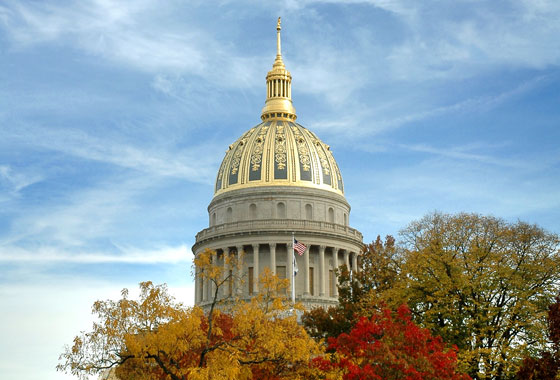
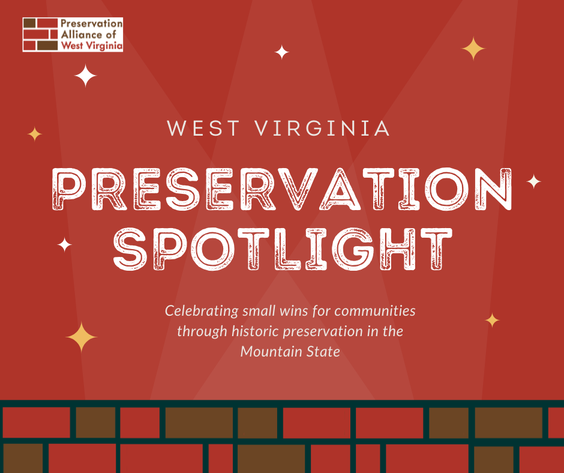
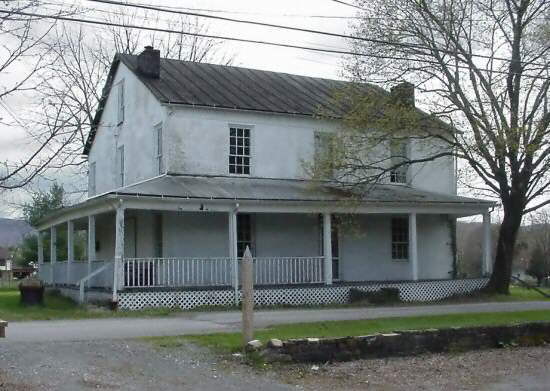
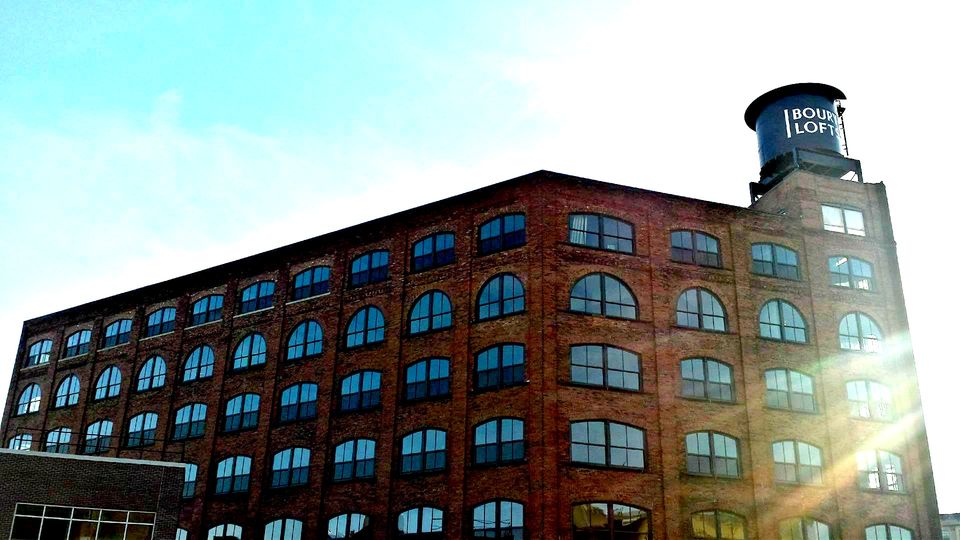
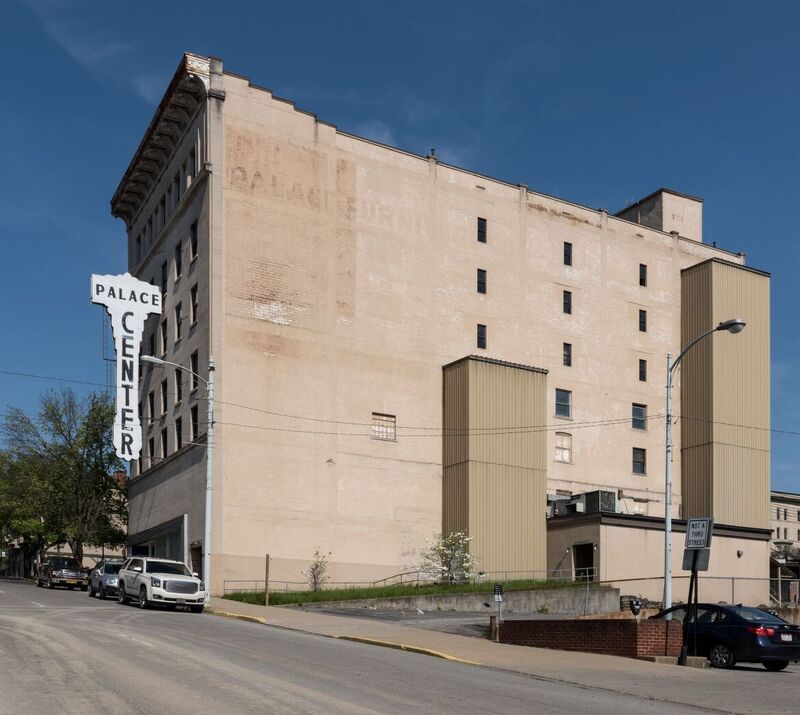
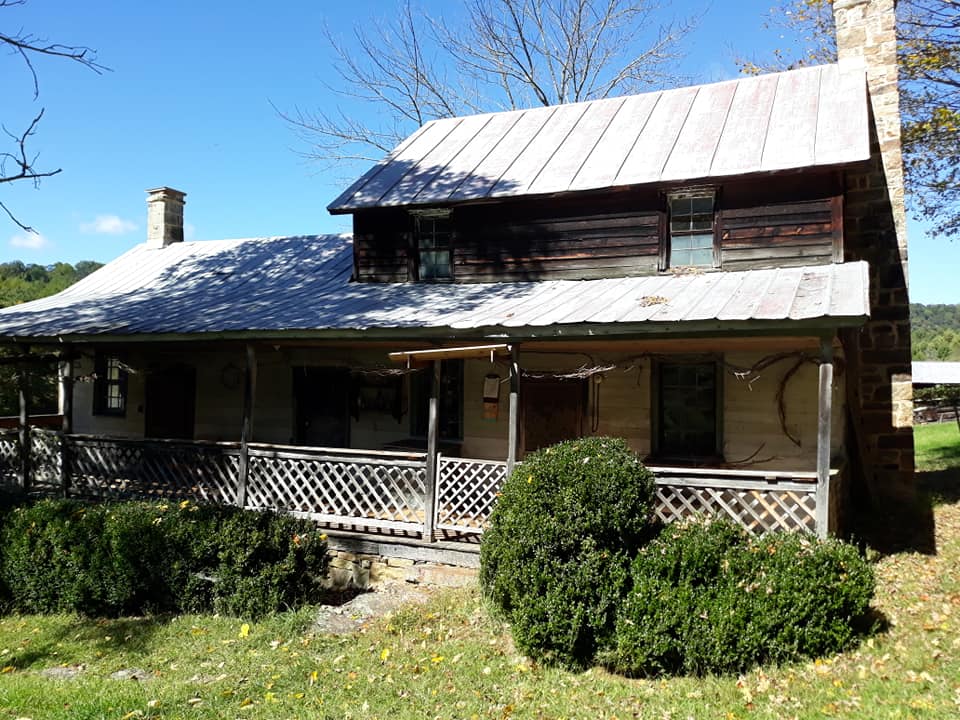
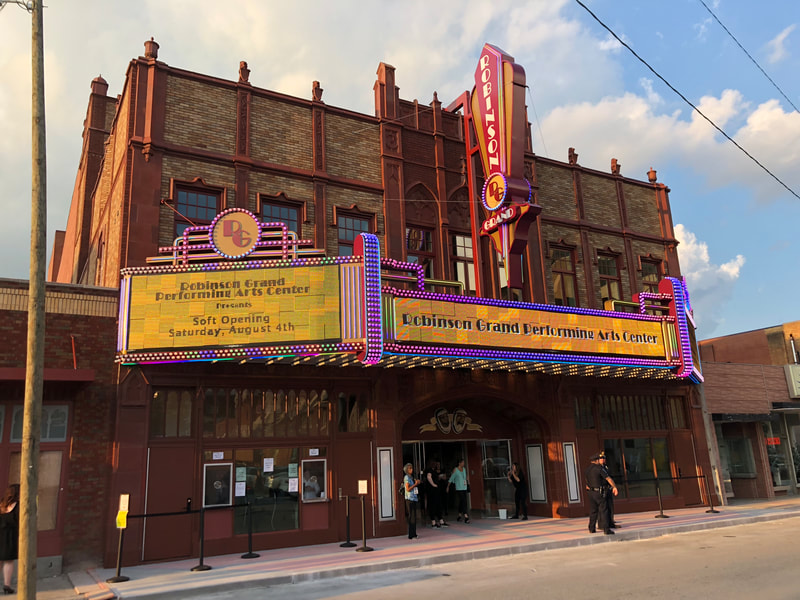
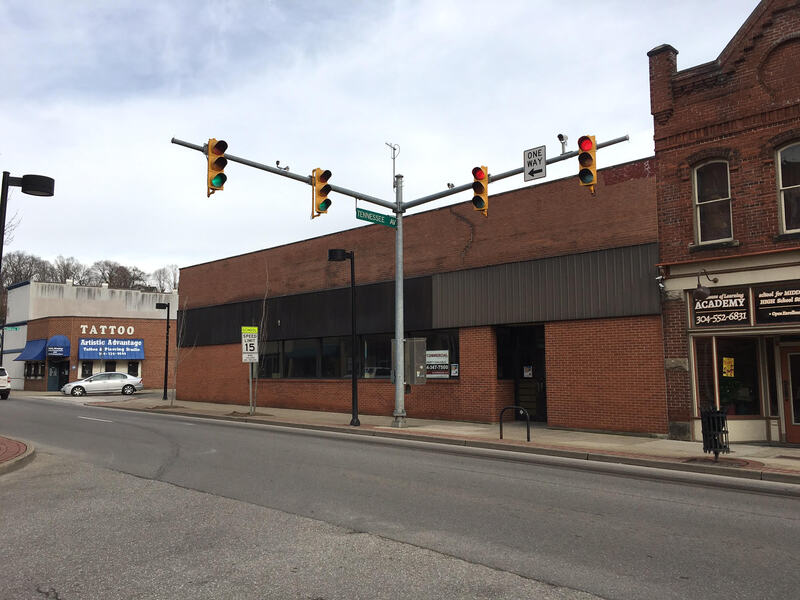
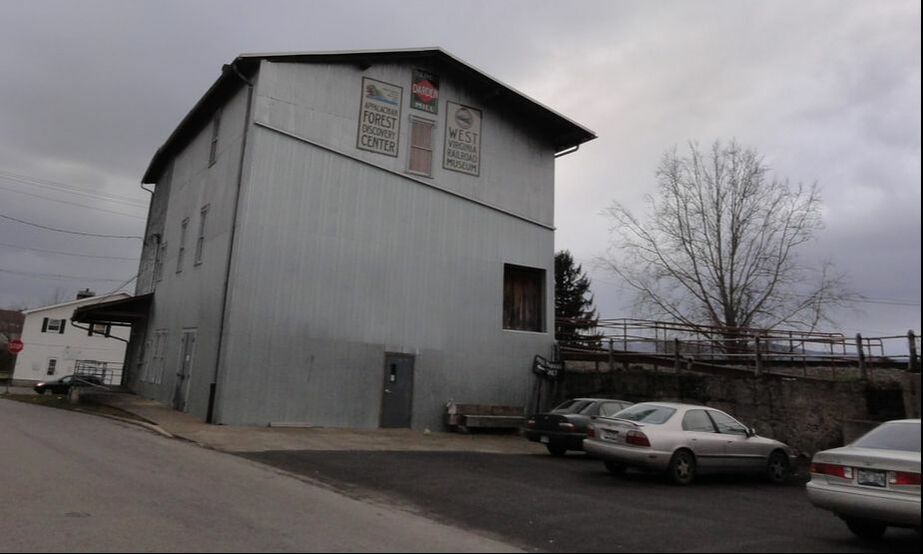
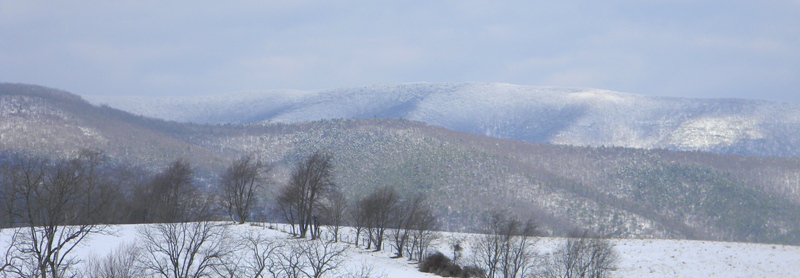
 RSS Feed
RSS Feed



